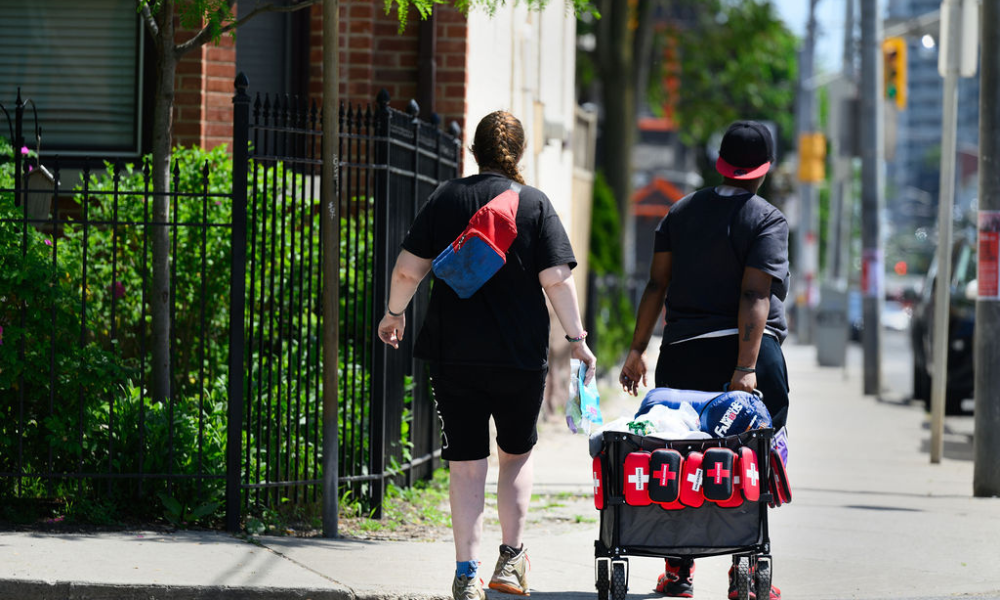Well-being in action
Street Health supports health, safety, and housing in downtown Toronto.

Street Health volunteers.
For almost 40 years, Street Health has supported people in downtown Toronto who are homeless or under-housed. This non-profit, community-based organization offers healthcare, education, and advocacy. It also operates with a strong focus on harm reduction.
We spoke with Lin Sallay, the Executive Director of Street Health, about the organization’s mission. She shared how their team delivers life-saving care and works with partners to keep people safe in the community of their choice.
Street Health offers many services. These include drop-in nursing and foot care clinics, mental health support, help getting government ID and health cards, and access to hygiene items and harm reduction supplies. They also run an overdose prevention site, and support people in shelters and who are moving into housing. These services save lives and help build trust and stability for people facing serious challenges.
One of their clients, “GL,” had been homeless for over 20 years. With support from Street Health and its partners, “GL” moved into stable housing. He could then start to rebuild his life. Staff helped him set up rent payments, get financial support, and access regular medical and mental health care. Today, he’s living more safely and independently than he has in years.
Street Health works closely with local partners including hospitals, shelters, religious organizations, and food banks. They also partner with TCHC to help tenants keep their homes. Street Health helps with skill building, provides advocacy support, and links tenants to social assistance where needed. “It’s very hard to focus on your health without a stable place to live,” says Lin.

Street Health staff frequently speak out for better access to healthcare, harm reduction, and affordable housing for their clients and other residents of Toronto. Their team also joins community events and provides public education. In 2024, 96 per cent of Street Health clients said the service met their needs, and 93 per cent would recommend Street Health to others.
Street Health gets funding from all levels of the government and from individual donors, foundations, and community groups. Unfortunately, the organization and their clients still face challenges like toxic drug supplies, not enough shelter beds, and long waits for housing.
“We work tirelessly to secure more funding for our outreach services, to meet the growing needs of communities, and advocate for improved access to supportive housing, so people can recover and rebuild their lives,” says Lin.
Want to help?
If someone you know is homeless or needs harm reduction support, call Street Health at 416-921-8668. You can also visit streethealth.ca to view the ID clinic schedule and to apply for mental health support.
